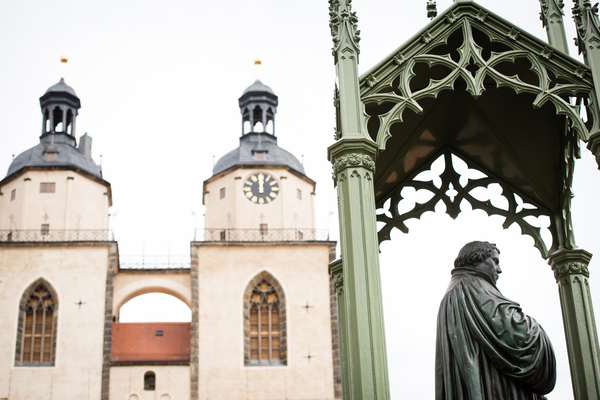
Five hundred years ago this month, 32-year-old Martin Luther lived as a monk in Wittenberg. He earned his doctorate and soon began lecturing on the Psalms and Romans and would eventually preach well over 2,000 sermons in the City Church before he died in 1546. What began with Luther studying and lecturing on Scripture eventually led to an explosion that rocked the Christian world and continues to do so. That explosion can be summarized by the three “solas” — that salvation is free by grace alone, apprehended by faith alone and believed from “Scripture alone.”
As we approach the 500th anniversary of the Reformation in 2017, you will increasingly see reports of what Luther and his message meant and means today. So what is the Reformation? Hermann Sasse described it as an episode in the history of the Church. It is foremost about the Church of Jesus Christ. “All [other] attempts to explain the Reformation are abortive . . . because they do not approach the Reformation from that point of view from which alone it can be understood—from the point of view of the reality of the church” [Sasse, Here We Stand (Harper, 1938), p. 50].
What’s going on with the Church today? Liberal Protestantism is collapsing worldwide. Rome is busy nuancing its image with a very active pope, yet also churning out new indulgences as though there had never been a Reformation. The Lutheran World Federation (LWF) and liberal American and European Lutherans are busy reinterpreting the Reformation as though it were the impetus for the full and final acceptance of homosexuality, bi-sexuality, trans-genderism, etc., in the church. The LWF has a full-scale “hermeneutics” project to convince Lutherans in the Southern Hemisphere that the Bible doesn’t really mean what it means or that it may mean something different in the South than in the North, and we all should just let it mean what it means to each of us and be happy about it.
Fortunately, many in the South are not buying it. As an episode in church history, this anniversary of the Reformation may be part of the greatest revival of the Church and certainly the Lutheran Church since the Reformation itself. We in the LCMS have so many requests for dialogue, partnership and church fellowship that we can’t keep up. These are from huge churches like the Mekane Yesus of Ethiopia and smaller but substantial churches in Ukraine and Norway and elsewhere. What do these churches want? How do they interpret the Reformation? Sola gratia. Sola fide. Sola scriptura! They want the Gospel. They want clear Lutheran teaching, based squarely on the clear Scriptures.
The real story of the Reformation is about the march of the Church of Jesus Christ in the face of impossible odds — thirsting for Christ and His means of grace, trusting in the Bible as God’s inerrant Word, struggling in the North but growing tremendously in the South. The Lord’s Church is one church, facing Islam and secularism — strong in the weakness of Christ, confident of eternal life.
The Reformation was a movement of repentance. The first thesis of the 95 Theses reads: “When our Lord and master Jesus Christ said ‘repent,’ he willed that the entire life of the Christian be one of repentance.” There is much to repent of in our lives: greed, impure thoughts, gossip, faithlessness. There is much to repent of as a church: shoddy Communion practice; lack of responsible visitation; gossip; second-rate preaching; inadequate teaching of the faith (e.g., one-day instruction classes to join the church); poor relationships among church staff; lack of care for pastors and church workers; lack of Bible class attendance; poor Bible class preparation; disdain for our magnificent Lutheran Confessions; lack of outreach and visitation of members and prospective members; lack of zeal for outreach and sharing the marvelous Gospel of Christ with our unchurched and dechurched neighbors. “Repent!” (See Matt. 3:1ff.; 4:17ff.)
Does this make you angry? Have you nothing to repent of? When I write these things, I think of my own horrid guilt, not yours. Perhaps a dose of Reformation theology would do us both good. Here’s what Luther wrote to his friend Spenlein in April 1516: “Beware of aspiring to such purity that you will not wish to be looked upon as a sinner, or to be one. For Christ dwells only in sinners” (Tappert, Letters of Spiritual Counsel [Philadelphia, Westminster], p. 110).
If “Christ dwells only in sinners,” you’d better be one. The future of the Church does not depend upon us sinners. The Reformation has a future. Even more, the Church has a future because, as Sasse noted, Jesus Christ has a future.




Thank you Pastor Harrison.